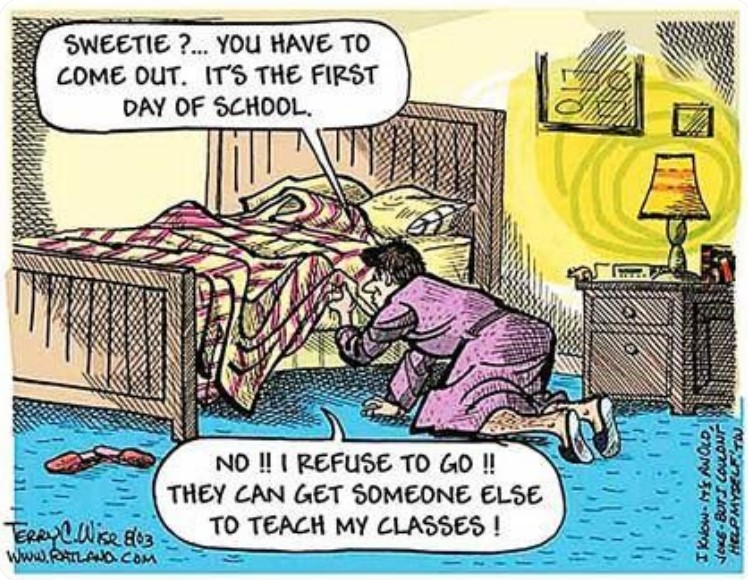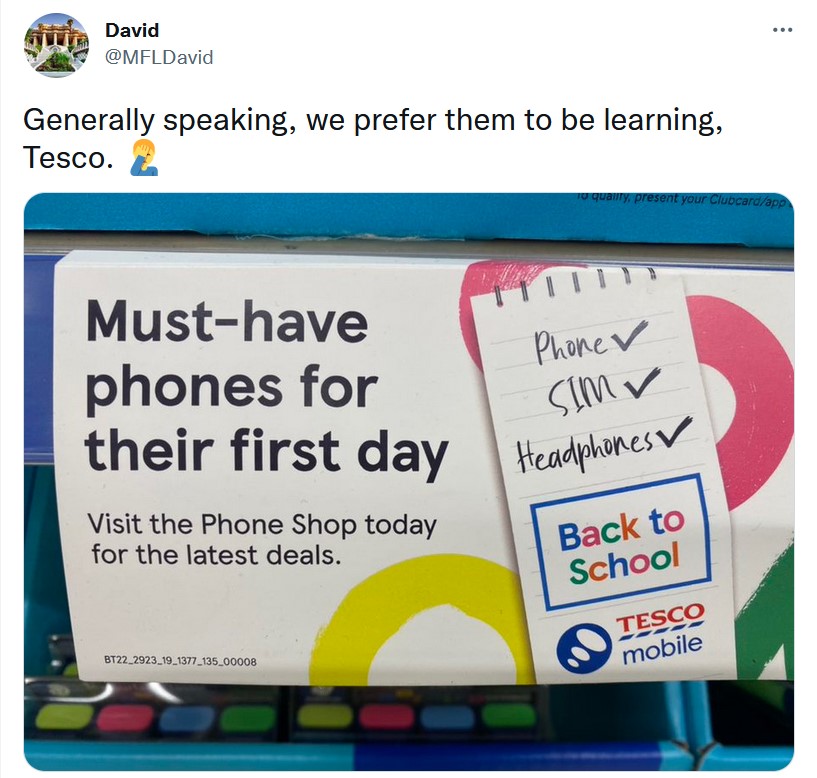This week I’ve been thinking about resources. On my never-ending list of Things To Do has been the project of sourcing or creating some more GCSE-style language practice papers that won’t risk wrecking a school’s assessment process. It is crucially important to me not to use actual past papers from the current specification, unless I know for a fact that the child I am working with has already been exposed to that particular paper in examination conditions. The risk of me inadvertantly showing them a paper that will then be used for in-class assessment or – even worse – for their Mock examination, is simply too high. Much as my students would I am sure be delighted to have an advance stab at their Mock paper with a tutor’s guidance, this would be unforgiveable and would entirely undermine the purpose of the Mock.
As a result of this personal rule, I use a bank of papers that I created from the old legacy GCSE to give my students more practice. Prior to the specification change in 2018, dozens of examination papers existed that could be made to fit the new specification with some relatively minor tweaks. I have around 10 or 12 of these already, which I made several years ago, but I have always wanted more.
As so often happens, once I put my mind to it, I found that I had a folder of stuff I had sourced from heaven knows where and saved into my “look at this at some point when you’ve got time” folder – a folder which is pretty enormous, as I never seemed to find said time. One folder in a folder in a sub-folder turned out to have a set of practice papers created by another teacher, all of them recognisably from papers from the dim and distant past or from relevant text books. So someone else had the same idea as me but used different sources to create them, and I’ve managed to get my hands on their work. Halle-blinking-lujah.
But this got me thinking. Something that friends and family find it hard to understand is that even though a huge amount of my time is spent working on resources, none of these can be monetised. I am grateful for my background in academia, a period during which a paranoia about plagiarism was drummed into me – and rightly so. There have been numerous cases of teachers monetising resources that have then turned out to be based on the work of others. Much of the time, I honestly believe that this may not even have been entirely deliberate. The way that we work means that it can become genuinely difficult to remember where your work ends and that of another begins. Teachers tend to be the curators of an ever-evolving bank of resources that many others have influenced in different ways over the years. I am acutely aware that pretty much everything I produce as a working resource for students started its life somewhere else – as a passage in an old text book, from a bank of files kindly shared by a colleague, on a dim and distant exam paper from days gone by. Very little of what I produce, therefore, can be claimed as entirely original and monetised. If you’re still not convinced, take a look at what happened on The Classics Library website, where resources being shared entirely for free fell foul of copyright laws and had to be taken down as requested by Cambridge University Press: anything which even relies on the ideas and concepts created by others is not entirely your own work.
Given how many times this issue has been raised in relation to the monetised resources on the TES website, I do worry about the number of teachers and tutors who are now monetising vast quantities of resources. I do hope that every single one of them can truthfully claim that every single word of what they have written is original to them and didn’t start life as part of a set of departmental resources or as a piece created by a colleague or a trainee. Personally, I can lay claim to very little that is entirely original to me, because I don’t believe in reinventing the wheel unless I have to. Much of my time is spent hunting for useful resources, then reimagining them in a format that I find most useful or compelling. To use a rather sickening phrase, I take a resource and “make it my own”. But it is not my own, in the sense that I can lay claim to its birth and monetise it as my own work. It simply isn’t. Even if it is barely recognisable from its original, it is still not mine to claim. And certainly not to sell.
A regular occurence for me throughout my career has been that I manage to get my hands on a bank of departmental resources only to find that they are using something that I wrote 15 years ago. There are numerous advantages to taking on a trainee teacher, and one very useful one is harvesting what they have brought from other schools; the number of times I have opened up a file with great excitement only to go … hang on … this looks familiar … oh yeah, I think I wrote that. Or did I just adapt it? Who knows?
So, while my resources are all available to the students I work with and I share them gladly, they are not something that I can actually charge for because they are the result of my work combined with that of others – sometimes another person that is known to me, sometimes a whole list of people whom I have never met. I’ve always known this and have always found it to be in stark contrast to how things work in academia, a world in which you have to footnote every giant’s shoulders on whom you stand. The trend of teachers and tutors monetising resources does give me pause for this reason; I only hope that they are aware of the rules, and can hand-on-heart swear that everything they are selling started life in their own head and came to fruition by their hand alone. If they can, then wow – they’re definitely a hell of a lot more original than I am.







